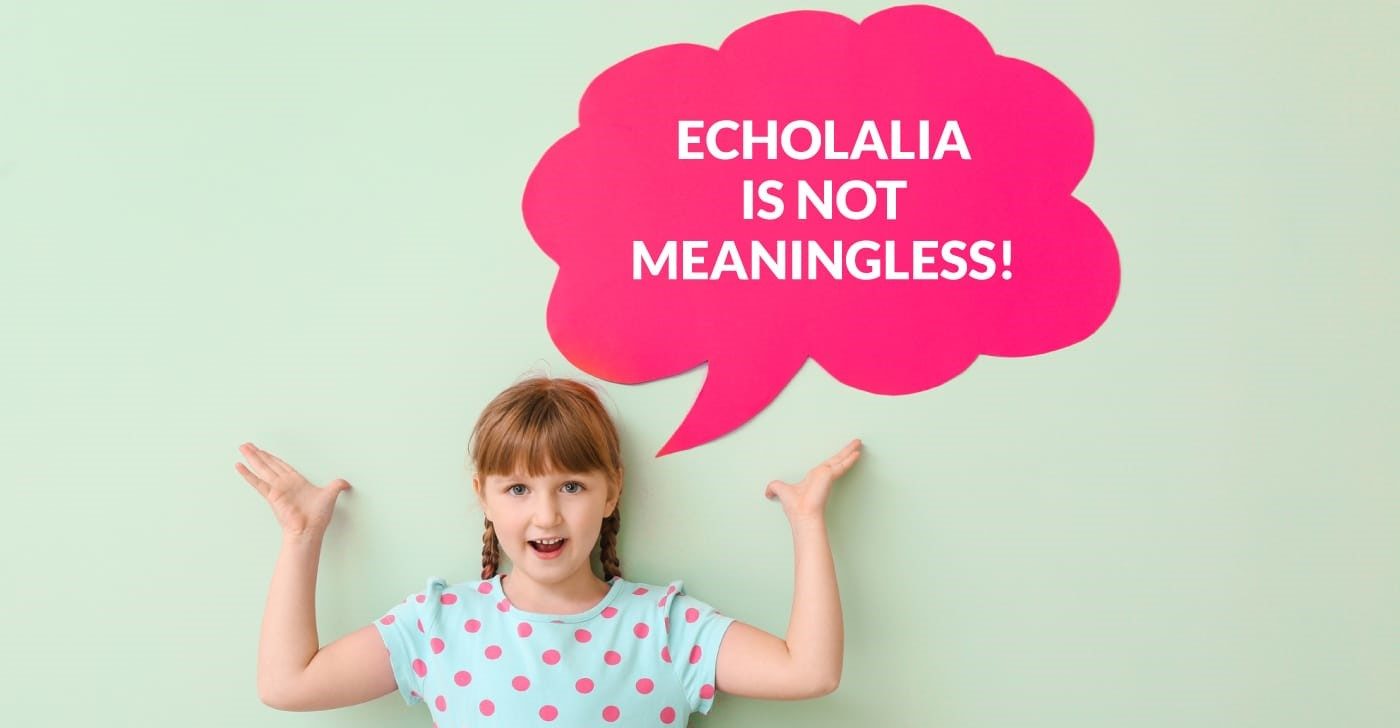
Why Does My Child Repeats Everything I Say?
Have you noticed your child is repeating words or phrases consistently? Do they repeat what you say instead of answering a question, or watch one of their favorite movies and speak lines from it over and over for the next week? It is ok to feel confused, frustrated, or at a loss. Your child may have something referred to as echolalia (scripting).
What is Echolalia (scripting)?
Echolalia, interchangeably referred to as scripting, can be described as a unique form of verbal imitation with consistent, repetitive words and phrases. A simple example: you ask your child what they would like to drink, “milk or water”? Their reply is, “milk or water,” with recurrent repetitions for long periods of time.
Echolalia typically develops in toddlers when learning to communicate and is commonly seen in children with Autism Spectrum Disorder (ASD). There are also different kinds of echolalia such as immediate versus delayed. Just like it sounds, immediate is when a child may repeat what you say or something they hear right after it happens. Delayed is when they script movie lines or something you usually say around the household later on, the next day, or maybe even throughout the week.
Phrases and words can also be used in functional and non-functional ways. Functional could be attempting to use words/phrases to communicate how they are feeling, try to explain a difficult area they don’t understand, attempting to tell you what they need. For example: a child that is thirsty for water may repeat to you, “coffee, coffee?” They may use coffee as a means to explain water, milk, or even juice. Another example is repeating, “McDonalds, McDonalds, we McDonalds?” This could be an attempt to tell you they are hungry – not necessarily wanting McDonalds every hour of the day, well… maybe sometimes.
Why is my child scripting?
- An attempt from your child to maintain a conversation by trying to communicate ideas that may be too hard for them to talk about or formulate.
- Attract attention from someone.
- Interact with other people or even objects/things (playing with toys).
- An attempt to ask for things they need – thirsty, hungry, or to use the restroom.
- Known as a sensory stimming outlet or used for soothing – when a child is upset, they may use words or phrases to help calm themselves down.
- Self-aid – using words/phrases to talk them through a difficult process.
- Reasons for use may change over time.
As noted, reasons will change over time. Scripting is a common way for your child to communicate with you the best they can. A few notes to keep in mind:
- Keep a journal! Your journal is your friend! Take note of what they are saying, their routine, what they are watching, what do they say, what happens after they say it? Have you noticed when they are upset they start to script more?
- Try and use their means of communication into daily activities.
- Participate in activities that require your child to create new words and sentences. For example, a picture story book with no narrative. Help them to create their story, let them use their imagination!
If you believe your child fits the profile, this post is not intended to diagnose or label your child, but to give you and your family more insight and education on the topic of echolalia. To inquire further, speak to your personal developmental pediatrician or contact your pediatric speech or occupational therapist.
At Kids Place Pediatric Therapy, we treat children with Echolalia through Speech and Occupational Therapy in many locations throughout Arizona. Contact us today for an evaluation of your child.







